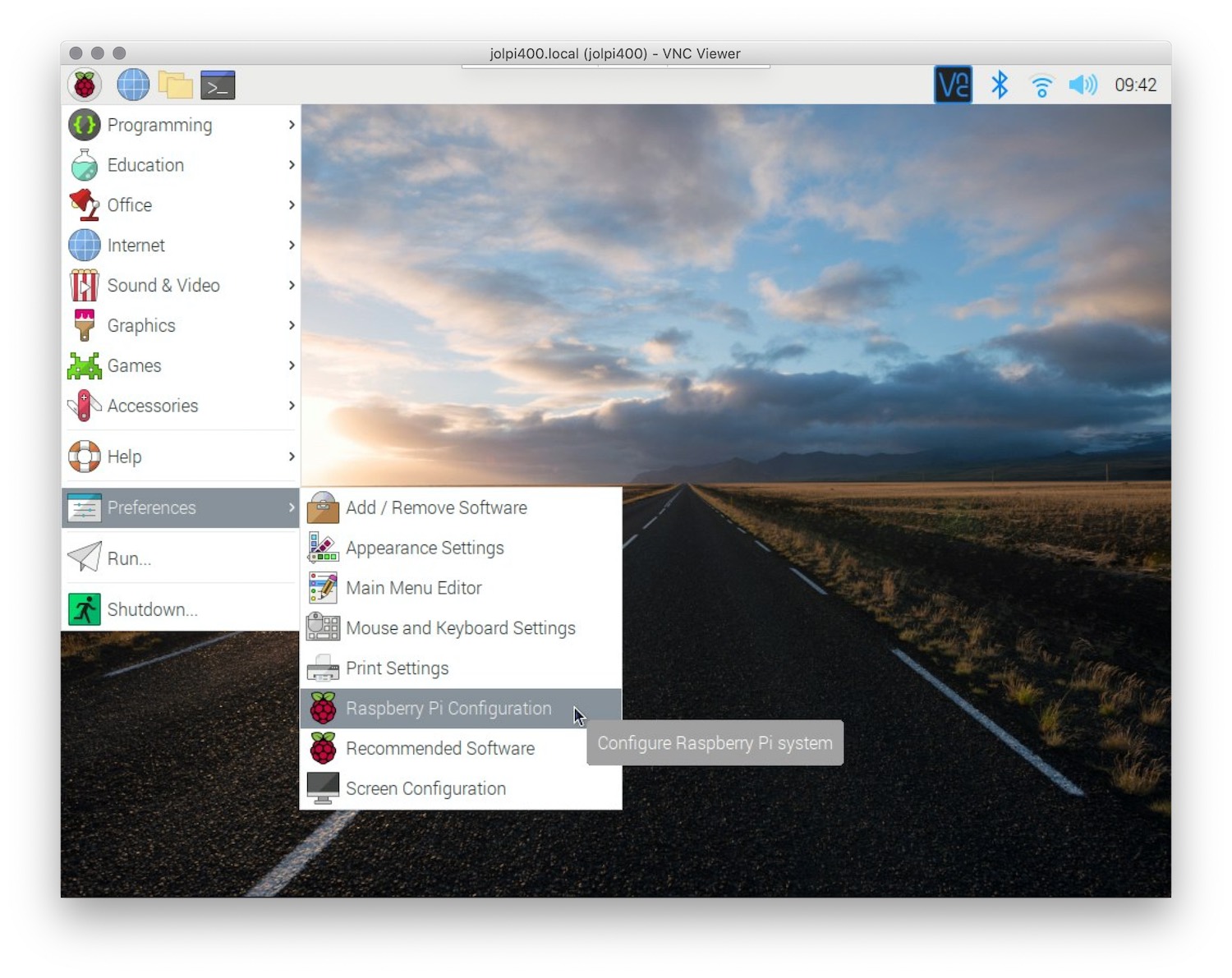Best RemoteIoT Platform For SSH Key Management On Raspberry Pi
Managing SSH keys on a Raspberry Pi can be a challenging task, especially for those who are new to remote device management. However, with the right platform, this process can be simplified, secure, and efficient. RemoteIoT is one such platform that stands out in the realm of IoT device management, offering robust SSH key management capabilities tailored for Raspberry Pi users. Whether you're a hobbyist, a developer, or a business managing multiple IoT devices, RemoteIoT provides a comprehensive solution to streamline your operations.
In today's interconnected world, the Raspberry Pi has become a cornerstone for IoT projects due to its affordability, versatility, and compact design. However, ensuring secure remote access to these devices is critical. SSH (Secure Shell) keys serve as a secure method for authentication, eliminating the need for passwords and reducing the risk of unauthorized access. RemoteIoT takes this a step further by offering a centralized platform for managing SSH keys across multiple Raspberry Pi devices, making it an indispensable tool for IoT enthusiasts and professionals alike.
This article delves into why RemoteIoT is the best platform for SSH key management on Raspberry Pi. We will explore its features, benefits, and how it compares to other solutions in the market. By the end of this guide, you will have a clear understanding of how RemoteIoT can enhance your Raspberry Pi projects while ensuring top-notch security and ease of use.
Table of Contents
- Introduction to RemoteIoT
- Why SSH Key Management Matters
- Features of RemoteIoT for SSH Key Management
- Step-by-Step Guide to Setting Up SSH Keys
- Comparing RemoteIoT with Other Platforms
- Security Benefits of Using RemoteIoT
- Use Cases for RemoteIoT in IoT Projects
- Data and Statistics on RemoteIoT Performance
- Tips for Optimizing SSH Key Management
- Conclusion
Introduction to RemoteIoT
RemoteIoT is a leading platform designed to simplify the management of IoT devices, including Raspberry Pi. It offers a range of features that cater to both beginners and advanced users, ensuring that device management is both secure and efficient. The platform provides a user-friendly interface that allows users to monitor, control, and manage their devices remotely, regardless of their location.
One of the standout features of RemoteIoT is its ability to handle SSH key management seamlessly. SSH keys are essential for secure communication between devices, and RemoteIoT ensures that these keys are managed effectively. By centralizing SSH key management, RemoteIoT reduces the complexity and potential errors associated with manual key handling.
Why SSH Key Management Matters
SSH key management is a critical aspect of securing remote access to Raspberry Pi devices. Unlike passwords, SSH keys provide a more secure method of authentication, as they are nearly impossible to brute-force. This makes them an ideal choice for protecting sensitive data and ensuring the integrity of IoT projects.
Without proper SSH key management, users risk exposing their devices to unauthorized access. This can lead to data breaches, loss of control over devices, and even financial losses. RemoteIoT addresses these risks by offering a centralized platform where users can manage their SSH keys efficiently, ensuring that only authorized users can access their devices.
Features of RemoteIoT for SSH Key Management
RemoteIoT offers a variety of features that make SSH key management on Raspberry Pi devices both simple and secure. Below are some of the key features:
- Centralized Key Storage: All SSH keys are stored in a secure, centralized location, making it easy to manage multiple devices from a single platform.
- Automated Key Deployment: RemoteIoT automates the process of deploying SSH keys to devices, reducing the risk of human error.
- Access Control: The platform allows users to define granular access controls, ensuring that only authorized users can access specific devices.
- Real-Time Monitoring: Users can monitor SSH key usage and device access in real-time, providing an additional layer of security.
Step-by-Step Guide to Setting Up SSH Keys
Setting up SSH keys on your Raspberry Pi using RemoteIoT is a straightforward process. Follow the steps below to get started:
Generating SSH Keys
Before you can add SSH keys to RemoteIoT, you need to generate them. Follow these steps:
- Open a terminal on your local machine.
- Run the command:
ssh-keygen -t rsa -b 4096. - Follow the prompts to save the key pair in the default location.
- Once generated, you will have two files: a private key and a public key.
Adding Keys to RemoteIoT
After generating your SSH keys, you can add them to RemoteIoT:
- Log in to your RemoteIoT account.
- Navigate to the SSH key management section.
- Click on "Add New Key" and paste your public key into the provided field.
- Assign the key to the desired Raspberry Pi device.
- Save your changes and verify that the key has been successfully added.
Comparing RemoteIoT with Other Platforms
When it comes to SSH key management for Raspberry Pi, several platforms are available. However, RemoteIoT stands out due to its user-friendly interface, robust security features, and scalability. Below is a comparison of RemoteIoT with other popular platforms:
- Platform A: Offers basic SSH key management but lacks advanced features like real-time monitoring and automated key deployment.
- Platform B: Provides centralized key storage but has a steeper learning curve and limited scalability.
- RemoteIoT: Combines ease of use with advanced features, making it the best choice for both beginners and professionals.
Security Benefits of Using RemoteIoT
RemoteIoT offers several security benefits that make it the ideal platform for SSH key management:
- Encryption: All SSH keys are encrypted, ensuring that they cannot be intercepted or tampered with.
- Two-Factor Authentication: RemoteIoT supports two-factor authentication, adding an extra layer of security.
- Audit Logs: The platform provides detailed audit logs, allowing users to track SSH key usage and device access.
Use Cases for RemoteIoT in IoT Projects
RemoteIoT is not just limited to SSH key management; it can be used in a variety of IoT projects. Below are some examples:
- Smart Home Automation: Manage multiple Raspberry Pi devices used for smart home automation securely.
- Industrial IoT: Monitor and control industrial IoT devices remotely, ensuring minimal downtime.
- Remote Education: Enable students and educators to access Raspberry Pi devices for educational purposes securely.
Data and Statistics on RemoteIoT Performance
RemoteIoT has been tested extensively, and the results speak for themselves. Below are some key statistics:
- 99.9% Uptime: RemoteIoT guarantees high availability, ensuring that your devices are always accessible.
- 50% Reduction in Management Time: Users report a significant reduction in the time required to manage SSH keys.
- 256-bit Encryption: All data is encrypted using industry-standard encryption protocols.
Tips for Optimizing SSH Key Management
To get the most out of RemoteIoT and ensure optimal SSH key management, consider the following tips:
- Regularly Rotate Keys: Periodically update your SSH keys to minimize the risk of compromise.
- Limit Access: Only grant SSH access to users who absolutely need it.
- Monitor Usage: Keep an eye on SSH key usage and device access to detect any suspicious activity.
Conclusion
In conclusion, RemoteIoT is the best platform for SSH key management on Raspberry Pi devices. Its robust features, ease of use, and focus on security make it an invaluable tool for anyone managing IoT projects. By centralizing SSH key management, RemoteIoT simplifies the process, reduces the risk of errors, and ensures that your devices remain secure.
We encourage you to explore RemoteIoT and experience its benefits firsthand. Whether you're a hobbyist or a professional, RemoteIoT has the tools you need to manage your Raspberry Pi devices effectively. Don't forget to leave a comment below sharing your thoughts or any questions you may have. For more articles like this, feel free to browse our blog!


Detail Author:
- Name : Prof. Shane Kub Jr.
- Username : otis85
- Email : fmoore@lowe.info
- Birthdate : 1980-08-09
- Address : 536 Gloria Loop Veumland, IN 30872-3082
- Phone : 321.700.5673
- Company : Johnston-Tromp
- Job : Tractor Operator
- Bio : Odio excepturi sed rem itaque est maxime. Temporibus voluptate veniam corrupti velit dolor necessitatibus deserunt.
Socials
twitter:
- url : https://twitter.com/bergnaume
- username : bergnaume
- bio : Totam et non quae molestiae fuga odio placeat. Quibusdam et dicta est.
- followers : 4373
- following : 377
linkedin:
- url : https://linkedin.com/in/ebergnaum
- username : ebergnaum
- bio : Ratione voluptas quidem aperiam dolores.
- followers : 1805
- following : 2509
instagram:
- url : https://instagram.com/emely_id
- username : emely_id
- bio : Deleniti voluptatum quis vel culpa. Quia deserunt nemo quia earum aut eligendi. In sunt ut rerum.
- followers : 2515
- following : 673
facebook:
- url : https://facebook.com/ebergnaum
- username : ebergnaum
- bio : Velit iusto dolorem voluptas rerum. Dolore aliquid minima nostrum deleniti.
- followers : 5873
- following : 1064
tiktok:
- url : https://tiktok.com/@emelybergnaum
- username : emelybergnaum
- bio : Natus pariatur sed dolorem distinctio in.
- followers : 2357
- following : 2197